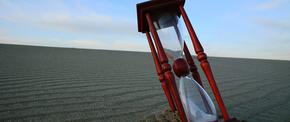The views expressed in our content reflect individual perspectives and do not represent the authoritative views of the Baha'i Faith.
During our annual camping trip, John and I eagerly look forward to building a roaring fire to take the chill out of the evening.
The last time, though, it didn’t happen right away. We’re both generally adept with campfires, and we had a nice stack of firewood, but the fire needed more small and medium bits of dry wood for the flame to catch, to spread, and finally to build an energy of its own.
As the fire started, fluttered and then went out, and we sat there in the dark, cold night, I realized that a good fire requires the correct materials as well as skill, time, and patience.
So while I rearranged the logs and scrounged for other flammable materials, I found myself thinking about fire and its place in the world. Like other aspects of nature, it can be both constructive and destructive; entertaining as well as practical. It can be controlled within limits, and it obeys laws.
Nature creates fires through lightning, thereby igniting combustible, organic material. Likewise, in building a campfire, I must create the right conditions, have the ingredients in correct proportion, and work in the proper sequence. If I do it well, a flame front will propagate, contagion will take over, and even damp wood will ignite from nearby pieces.
This quality of contagion is a double-edged sword. We know we can catch illness from other people. Perhaps less obviously, we can also catch a good mood, optimism, and inspiration—and the same is true for negative and, worse yet, destructive attitudes. The Baha’i writings frequently use this dual nature of fire to express the reality of our souls in physical as well as metaphorical terms:
Let thy soul glow with the flame of this undying Fire that burneth in the midmost heart of the world, in such wise that the waters of the universe shall be powerless to cool down its ardor. – Baha’u’llah, Gleanings from the Writings of Baha’u’llah, p. 38.
… the tongue is a smoldering fire, and excess of speech a deadly poison. Material fire consumeth the body, whereas the fire of the tongue devoureth both heart and soul. – Ibid., p. 265.
Religious writings have long used the concept of “test by fire” to indicate purification through difficult times. Fire symbolizes the means through which we build character. It challenges us to overcome our problems, and it inspires us by warming our hearts and prompting action.
I suppose fire itself is neither good nor bad. Its essential nature is to burn, just like water will make things wet:
The inherent nature of fire is to burn, the inherent nature of electricity is to give light, the inherent nature of the sun is to shine, and the inherent nature of the organic earth is the power of growth. – Abdu’l-Baha, Abdu’l-Baha in London, p. 27.
This means that labels such as “good” and “bad” are subjective, with the key factor being my own attitude toward whatever I am experiencing. Fire’s impact may be evaluated in terms of its effects and my own expectations.
Heat from fire changes a substance, reducing it to its elemental parts. The same may be said for people, who may find themselves transformed through their efforts in overcoming adversity. Fire can purify a substance, removing the dross that otherwise conceals its beauty. The same can happen for people, who come through problems radiant in their relief to have overcome them and grown stronger as a result.
So there I was, back at the now-roaring campfire, lost in thought, finally enjoying the fire’s warmth and light—and dearly hoping for its protection against wolves and mosquitoes, too.

















Comments
Sign in or create an account
Continue with Facebookor